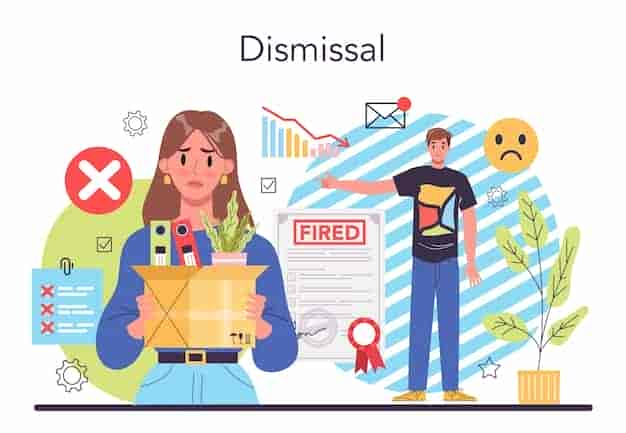Hybrid Learning: Blending Online & In-Person Classes
Ellie Moore

Photo: Hybrid Learning: Blending Online & In-Person Classes
Hybrid Learning: Blending Online & In-Person Classes for a Flexible Education Experience
The world of education is evolving rapidly, driven by technological advancements and changing student needs. One of the most prominent shifts in recent years is the rise of hybrid learning a dynamic approach that combines the benefits of both online and in-person classes. Hybrid learning offers students the flexibility to engage in their studies from anywhere while still maintaining the vital human interaction and hands-on learning that traditional classrooms provide.
This article explores the concept of hybrid learning, its advantages, challenges, and how it’s reshaping education for learners and educators alike.
What is Hybrid Learning?
Hybrid learning refers to an educational approach where a mix of online and face-to-face learning methods are employed to provide a more flexible and personalized learning experience. In a hybrid classroom, some students attend in person, while others participate virtually. The goal is to harness the strengths of both environments: the accessibility and convenience of online learning, and the social interaction and real-time feedback of in-person instruction.
For instance, students may access lectures or course materials online at their own pace, while engaging in live discussions, group activities, or hands-on workshops during in-person sessions.
Benefits of Hybrid Learning: A Perfect Blend
Hybrid learning is not just a trend it's a solution to several challenges faced by both students and educational institutions. Below are some of the key benefits:
1. Flexibility for Students
One of the most compelling reasons for the growing popularity of hybrid learning is the flexibility it offers. Students can attend classes remotely or on campus, depending on their schedule or personal circumstances. This flexibility is especially valuable for:
- Working professionals who need to balance education with a job
- Students with disabilities who may find traveling to campus difficult
- Parents who need to manage childcare and other responsibilities
- International students who may be located far from campus
2. Increased Accessibility
Hybrid learning broadens access to education. Students who may not have been able to attend a traditional university or college due to geographical or financial constraints can now benefit from online components of hybrid courses. Even if a student lives far away, they can participate in the academic experience through virtual sessions.
3. Engagement through Diverse Learning Methods
In a hybrid learning model, instructors can use a variety of teaching methods to engage students. From pre-recorded videos to interactive online quizzes and virtual collaboration tools, students are exposed to multiple forms of content delivery. This approach caters to diverse learning styles, ensuring that both visual and auditory learners have a chance to thrive.
For example, students might watch recorded lectures before class, participate in discussion boards online, and then meet in person for a hands-on lab session or group project work.
4. Better Resource Utilization
Hybrid learning allows institutions to make more efficient use of resources. For instance, large lecture halls can be used for in-person sessions, while smaller, more intimate spaces or online platforms can be used for interactive discussions, assessments, and one-on-one tutoring.
In addition, the availability of online resources means that educational institutions can reduce costs associated with physical infrastructure and commuting, benefiting both students and schools.
5. Preparation for the Digital Workforce
As the job market continues to embrace remote work, hybrid learning prepares students for a career where digital tools and flexibility are the norm. Learning how to collaborate virtually, manage online projects, and navigate various digital platforms will provide students with valuable skills applicable to many professions.
How Hybrid Learning Works
Hybrid learning is not a one-size-fits-all model it can be adapted to different disciplines, teaching styles, and student needs. Here’s a look at how hybrid learning typically functions:
1. Online Component
The online portion of hybrid learning usually includes:
- Pre-recorded lectures: Students can watch lessons at their convenience, allowing them to learn at their own pace.
- Discussion boards: Online forums where students can interact with peers, ask questions, and exchange ideas.
- Digital assessments: Quizzes, assignments, and exams that can be completed online.
- Collaborative tools: Platforms like Zoom, Slack, or Microsoft Teams for virtual discussions and group work.
2. In-Person Component
The in-person component focuses on:
- Interactive learning: Hands-on activities, group projects, and face-to-face discussions that reinforce online lessons.
- Instructor interaction: Opportunities for direct feedback and personalized instruction that may be more difficult to achieve in an online setting.
- Networking opportunities: Face-to-face interaction with peers, mentors, and professors that help build relationships within the academic community.
3. Blended Approach
In some cases, hybrid learning incorporates a flipped classroom model, where students engage with online content before class, and classroom time is used for applying knowledge, solving problems, and collaborating with peers. This approach maximizes in-person time for interactive, higher-order learning.
Challenges of Hybrid Learning
While hybrid learning offers numerous benefits, it also presents some challenges that institutions, educators, and students need to navigate.
1. Technology Barriers
For students and institutions that lack access to reliable technology, hybrid learning can be a significant hurdle. Not everyone has access to high-speed internet, quality devices, or the technical know-how required to use online learning tools effectively.
2. Student Engagement
Maintaining engagement in a hybrid classroom can be tricky, especially with remote students who might feel disconnected from the class. Without the immediate interaction that in-person learning offers, some students may struggle to stay motivated or engaged with the material.
3. Instructor Adaptation
Teachers must adapt to new teaching methods, balancing online and in-person components effectively. This requires not only technical proficiency but also the ability to design a learning experience that is coherent and meaningful in both formats.
4. Assessment Integrity
With the flexibility of online assessments comes the challenge of ensuring that assessments are fair and that students are not engaging in dishonest practices. Educational institutions must implement secure and effective systems for evaluating student progress in a hybrid model.
Practical Tips for Students in a Hybrid Learning Environment
If you're a student navigating hybrid learning, here are some actionable tips to help you succeed:
1. Stay Organized
With both online and in-person components, keeping track of deadlines, assignments, and class materials is crucial. Use digital planners, calendars, or apps like Trello to manage your schedule and stay on top of your coursework.
2. Engage Actively
Participate in both the online and in-person parts of your course. Don’t just watch videos take notes, ask questions, and contribute to discussions. In-person time is limited, so make the most of it by interacting with peers and instructors.
3. Create a Productive Learning Space
Whether you're studying from home or on campus, having a dedicated, quiet space for learning can significantly boost your focus and productivity. Make sure your environment is free from distractions and equipped with the tools you need.
4. Embrace Technology
Familiarize yourself with the tools and platforms your institution uses for hybrid learning. Learning to navigate tools like Zoom, Moodle, or Google Classroom can save you time and frustration.
Conclusion
Hybrid learning is an exciting and transformative approach to education that combines the flexibility of online learning with the engagement and social interaction of traditional in-person classes. While it comes with its own set of challenges, the benefits far outweigh them, offering students a more personalized, accessible, and dynamic learning experience.
As educational institutions continue to refine hybrid learning models, students can look forward to a future where learning is truly flexible, adaptable, and tailored to their needs.
Call to Action:
Have you experienced hybrid learning? What do you think about the blend of online and in-person classes? Share your thoughts in the comments below, and don’t forget to explore our related articles on innovative education trends!
FAQs
1. What are the main benefits of hybrid learning?
Hybrid learning provides flexibility, accessibility, and a diverse set of learning methods that cater to various learning styles. It also prepares students for a digital workforce while making better use of institutional resources.
2. How can I stay engaged in a hybrid classroom?
Active participation in both online and in-person components, staying organized, and seeking help when needed are key strategies to remain engaged in a hybrid learning environment.
3. What challenges might hybrid learning face in the future?
Technology barriers, maintaining student engagement, and ensuring assessment integrity are likely to be ongoing challenges as hybrid learning continues to evolve.
4. How can institutions ensure the effectiveness of hybrid learning?
Educational institutions can ensure success by providing technical support, offering professional development for instructors, and fostering a strong online community for students.
Finance & Investment
View All
April 6, 2025
Save for Retirement Using Tax-Advantaged AccountsLearn how to save smarter for retirement with tax-advantaged accounts. Maximize your savings and secure your future today!
Ellie Moore

September 24, 2025
Toyota Finance Company DetailsMaster expert SEO content! Learn to craft high-quality, E-E-A-T driven content that ranks, satisfies users, and builds trust. Your guide to digital success.
Ellie Moore

November 29, 2025
What It Means to Finance a CarCreate expert SEO content that ranks high and truly helps your audience. Focus on E-E-A-T, originality, and a people-first approach for success.
Ellie Moore

July 2, 2025
Top Careers in Finance for 2025Boost your rankings & engage readers with expert SEO content. Discover how to deliver genuine value, build E-E-A-T, and satisfy user intent for Google.
Ellie Moore

October 2, 2025
72 Month 0 Percent Truck FinancingMaster expert SEO content to build digital authority. Drive organic traffic, boost rankings, and establish trust with high-quality, valuable content.
Ellie Moore

November 18, 2025
Jeep Financing Made AffordableUnlock online success in 2025! Discover how expert SEO content drives rankings, engagement & conversions. Create authoritative, valuable content that truly stan...
Ellie Moore
Insurance
View AllInsure your valuables! Learn what’s covered, from antiques to art, and how to ensure proper protection for collectibles.
Ellie Moore
Overpaying for car insurance? Discover top-rated solutions for optimal coverage & value. Protect your finances with our comprehensive guide.
Ellie Moore
Explore Nationwide Pet Insurance: plans, costs, coverage, claims, waiting periods, and market trends. Your ultimate guide to protecting your beloved pet.
Ellie Moore
Protect your journey! Discover why complete travel insurance is vital for safeguarding your finances and peace of mind from unexpected trip disruptions.
Ellie Moore
Secure superior protection with Premium Freeway Insurance Coverage. Go beyond basic policies to mitigate risks, ensure financial stability & peace of mind.
Ellie Moore
Navigate car insurance with confidence. This guide helps policyholders & risk managers find top-rated agents for optimal coverage, best value, and peace of mind...
Ellie Moore
Education
View AllIs a college degree still worth it? Dive into a detailed analysis of the ROI on higher education, including costs, benefits, and future prospects.
Read MoreOutdoor learning promotes cognitive and social growth. Explore how nature-based education enhances learning outcomes and student well-being.
Read MoreLearn how UNESCO promotes education for all globally. Explore key initiatives and efforts aimed at fostering equal learning opportunities for everyone.
Read MoreEthics in education is vital for balanced learning. Learn how to teach morality alongside knowledge transfer in today’s classrooms.
Read MoreDiscover why liberal arts education remains valuable in today’s tech-driven world. Explore how it fosters critical thinking and adaptability.
Read MoreDifferent cultures approach early education in unique ways. Discover how cultural values shape learning practices for young children around the world.
Read MorePopular Post 🔥
View All
1
2
3
4
5
6
7
8
9
10
Health






Automotive
View All
August 31, 2025
Top Rated Audio Amplifier Automotive Picks
Power up your ride! Our ultimate guide to top-rated car audio amplifiers helps you transform your sound. Get better quality, bass & expert tips.

February 9, 2025
EV Battery Health: How to Maximize Lifespan
Keep your EV running longer! Learn the best practices for maximizing battery health and extending its lifespan. Drive smarter today!

July 27, 2025
Jeff's Automotive Repair Services You Can Trust
Jeff's Automotive offers trusted car repair. Get reliable, honest service from expert mechanics, ensuring peace of mind for your vehicle.

August 5, 2025
Better Business Bureau Wiygul Automotive Burke Review
Searching for a reliable auto repair in Burke, VA? Explore Wiygul Automotive's BBB review & understand how BBB ratings ensure you find a trusted mechanic.

July 17, 2025
JP Automotive Offers Quality And Reliability
Experience unmatched quality & lasting reliability with JP Automotive. Your trusted partner for expert vehicle care & lasting peace of mind.

August 24, 2025
Harris Automotive Dependable Local Service
Choose a dependable local auto service for peace of mind. Harris Automotive offers trusted expertise, fair pricing, and top-tier care for your vehicle.

















